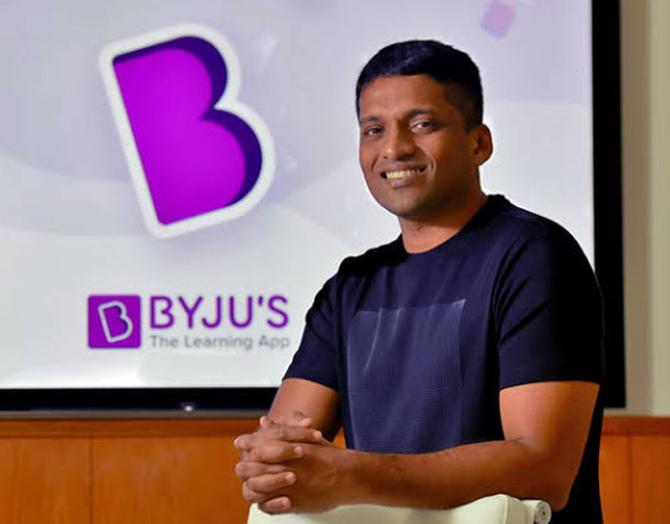Edtech company Byju’s parent Think & Learn will challenge the National Company Law Tribunal’s (NCLT’s) order on insolvency proceedings and may approach the National Company Law Appellate Tribunal (NCLAT) in the next few days, a source claimed.

With the NCLT appointing Pankaj Srivastava as the interim resolution professional (IRP), time is running out for Byju’s as the committee of creditors (CoC) begins to be formed.
“In all probability Byju’s will approach the NCLAT.
"They will file the appeal in a few days.
"Till then business will run as usual,” said a source in the know.
Explaining the importance of reaching a settlement before the CoC is formed, Ashish Pyasi, Partner, Aendri Legal said: “On admission of petition, the legal options available include challenging the order before the appellate tribunal.
"If possible, then the parties can settle the matter and the resolution process can be withdrawn.
"If the withdrawal is started before the constitution of the committee of creditors, then the consent of 90 per cent of creditors would not be required.
"However, if there is no settlement with the petitioner, then withdrawal can happen only once the same is approved by 90 per cent of the CoC.”
“Byju has the option of appeal against the order of the NCLT Bench and seek a stay of the order. However, until such an order is issued, the insolvency proceedings will likely commence,” said Prashanth Shivadass, Partner, Shivadass & Shivadass Law Chambers.
How would the NCLT order impact Byju?
Mukesh Chand, Senior Counsel at Economic Laws Practice, said that the NCLT's order to admit Byju's into the Corporate Insolvency Resolution Process (CIRP) would significantly impact the company's activities and operations.
“Control of Byju's will shift from its current management to the creditors through the Interim Resolution Professional (IRP),” said Chand.
“The company's daily operations will now be overseen by the IRP, who will also manage the collation of claims and assess Byju's financial status to form the CoC.
"This process could disrupt ongoing projects, partnerships, and new initiatives, causing uncertainty among employees, investors, and stakeholders while efforts to find a buyer or a resolution plan unfold,” he said.
Once the CoC gets formed, it will then run the company for 330 days during which they can find a buyer for it.
If they are unable to do so within 330 days, the company will get liquidated.
If Byju’s is unsuccessful in getting its plea accepted by the NCLAT, it can appeal to the Supreme Court within 45 days.
For creditors and employees who have been fighting with the company to get their investments and salaries paid, it could still be a wait-and-watch mode.
“Byju’s has also not paid salaries as has been reported.
"But salaries are one part of the debt that would be taken care of during the resolution process itself because salaries would be given priority as an expense for day-to-day running of a going concern,” explains Jasmine Damkewala, Senior Partner at Circle of Counsels and Advocate-on-Record, the Supreme Court of India.
According to several legal counsels, if the company gets liquidated, employees will be given priority.
Damkewala said the resolution process today was extremely different from the old liquidation process and should not be confused with the said process.
What the resolution process intends to do is to basically provide a lease of life or another chance to the company running through a new management which is free from financial mismanagement, she said.
“The success of the settlement in the long term is very doubtful because Byju’s is known to have taken a lot of debt on itself and has a lot of creditors.
"So even if Byju’s settles with one particular creditor and this petition is not proceeded with, yet there will be other creditors who can file against Byju’s to restart the CIRP,” Damkewala added.
What is the case all about?
The NCLT admitted Byju's, officially known as Think and Learn Pvt Ltd, into the Corporate Insolvency Resolution Process (CIRP) based on a petition filed by the Board of Control for Cricket in India (BCCI) due to unpaid dues amounting to Rs 158.90 crore.
Byju's acknowledged the debt through various emails requesting extensions and making part payments, which went in favour of the BCCI.
Byju's consented to the encashment of a bank guarantee of Rs 143 crore, which covered only part of the outstanding amount, further acknowledging the debt.
The path forward
- Byju's has an option to appeal to NCLAT; if unsuccessful, it can approach SC
- With IRP appointed, the day-to-day operations will move away from the current management
- Once CoC gets formed, it will run the company for 330 days
- Salaries of employees are the second highest priority if the company goes for liquidation












 © 2025
© 2025